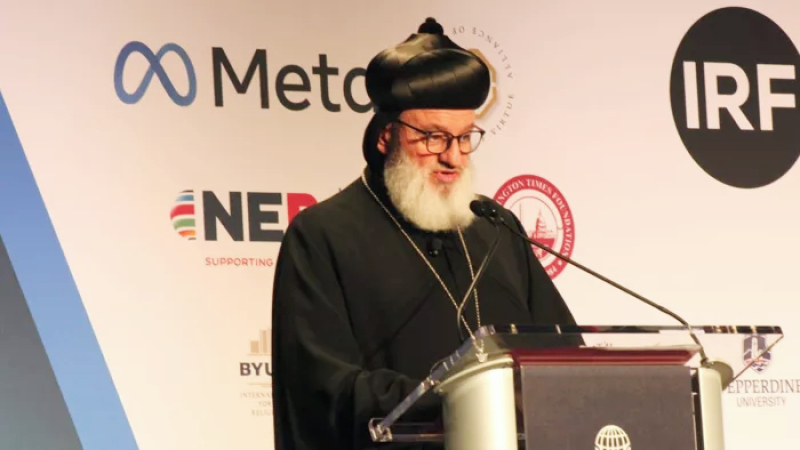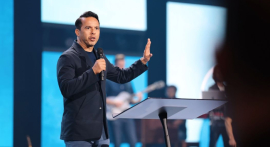
Moran Mor Ignatius Aphrem II, the supreme head of the Universal Syriac Orthodox Church, has presented a vision for how Christians worldwide can help rebuild Syria under Islamist-led rebel control.
Speaking at the International Religious Freedom Summit in Washington, D.C., on Tuesday, the patriarch called on the international community to assist in Syria’s reconstruction by lifting economic sanctions following the overthrow of the Bashar al-Assad regime.
The patriarch read from a joint statement released on December 29 by the patriarchs and leaders of churches in Syria, which outlined a plan for the country's future aimed at re-establishing the region as “an active member of the international community and to strengthen its belonging to its broader geographical and Arab surroundings.”
He emphasized, “As Christians, we have a vital and pivotal role to play in this phase by cooperating with everyone to advance and rebuild this homeland.”
Aphrem II further stated, “We recognize that our spiritual, moral, and national responsibility compels us to always raise the voice of truth, defend human dignity under all circumstances, and strongly strive to support the path of democracy, freedom, independence, and peace, which ensures the rights and dignity of all Syrians.”
The toppling of the Syrian government in December 2024 by Islamist rebel forces, led by Hayat Tahrir al-Sham (HTS), has created significant uncertainty for minority communities. HTS, which is designated as a terrorist organization, consists of former fighters from both the Islamic State and Al-Qaeda.
The church leaders and patriarchs outlined several measures for Syria to secure a new future, including a request to the international community to lift economic sanctions. They believe that by removing the sanctions, the global community could “support the path of reconstruction and economic recovery and create job opportunities.”
The joint statement noted, “Syria has recently endured economic sanctions, as well as an economic blockade. This has affected Syrian citizens from all spectrums. These sanctions have negatively impacted the local community in Syria and neighboring communities, which were also affected by migration.”
The Syrian church leaders have urged the drafting of a new constitution that is “inclusive and comprehensive,” involving all ethnicities and denominations to ensure equal representation for everyone.
The European Union, the United Kingdom, and the United States have implemented economic sanctions in response to the Assad government’s repression of civilians, with the U.S. designating Syria as a state sponsor of terrorism since 1979 and adding further sanctions in 2004.

















